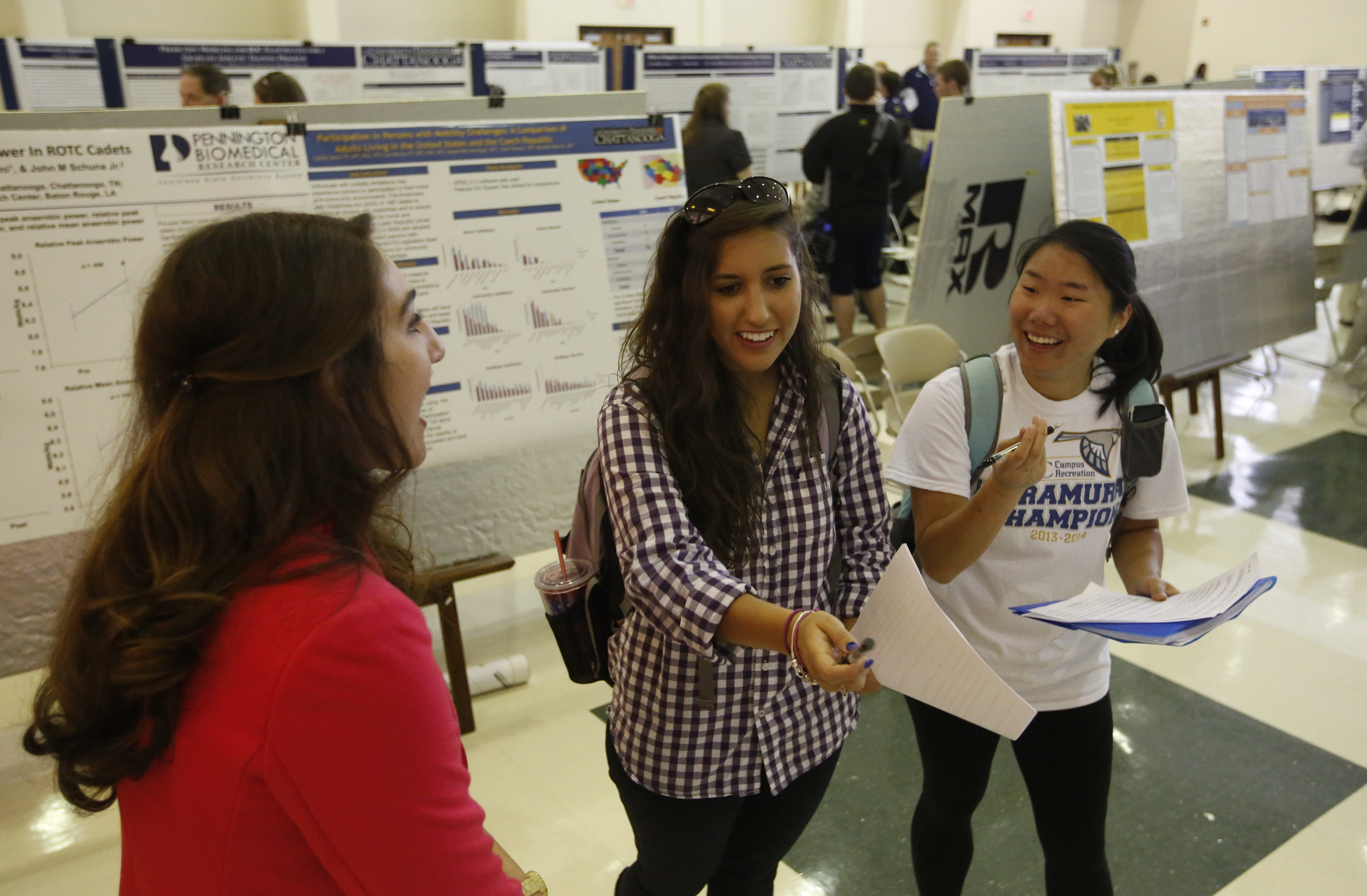UTC shows off research
Saturday, March 22, 2014
Student and faculty work on topics ranging from the creative and scholarly to the scientific, such as creating more efficient soybean-to-biodiesel fuel conversion, were on display at UTC on Friday for the school's annual Research Day.
More than 150 presentations were showcased, celebrating "creative and scholarly achievements" of the University of Tennessee at Chattanooga.
Matt Littell, of Nashville, discussed the graduate work he's doing with Benjamin Kegley on soybean oil conversion.
Typical industrial production involves 1,000-gallon containers of soybean oil heated with a catalyst for hours to produce a mix of biodiesel and soap, he said.
The method being developed at UTC shrinks the size of the containers, cuts out the soap and reduces the conversion time to about a minute, Littell said.
"It saves a whole step, which is money in industry," he said.
The project has a way to go, though. They're not getting as much biodiesel out of the oil as the common method, and although it's quicker, they can't handle volume much higher than a milliliter or so right now.
At a midday symposium, faculty experts tackled the issue of human longevity to answer one question relevant to every human: "Would you want to live to 100-plus?"
The experts in nutrition, philosophy, athletic training, health and human performance talked about how people can live longer and healthier lives.
The basic takeaway?
Eat more fruits and vegetables, move your body, make friends and have a purpose, the kinds of things that run counter to most Americans' current lifestyles.
The group listened to a talk by Dan Buettner, an author who teamed with National Geographic to study people from four areas on the globe whose lifespans and health far outrun those of most modern developed nations.
Buettner looked at Sardinia, Italy; Okinawa, Japan; Nicoya, Costa Rica; and Loma Linda, Calif.
Athletic training professor Gary Wilkerson clicked through a screen display showing the consequences of a poor diet that causes obesity, which contributes to insulin problems, which can lead to diabetes and possible stroke. That damage reverberates to mental and functional areas, causing a debilitating decline in a person's health.
Health and human performance professor Greg Heath talked about the epidemiology model, often used to examine disease. The one overriding area of focus for health has to be relationships. What your friends do often indicates what you will do, he said. If your friends are sedentary and overweight, you are more likely to be overweight or become so.
The nonphysical component was something all areas had in common -- a sense of purpose.
Many people studied share a common faith, but religion isn't necessary for purpose, said Talia Welsh, philosophy professor.
"Find a personal set of meaningful things that motivates you," she said.
Contact staff writer Todd South at tsouth@timesfreepress.com or 423-757-6347. Follow him on Twitter @tsouthCTFP.

